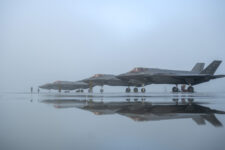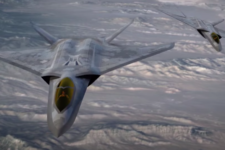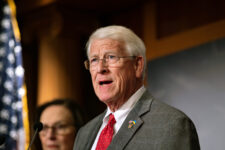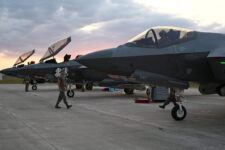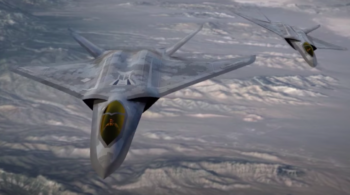
WASHINGTON: For the first time in its storied history, the secretive builder and operator of America’s spy satellites, the National Reconnaissance Office, will be run by a woman.
In the best Washington tradition, the news went out just before 5 p.m on a Friday when the NRO’s director in waiting, Betty Sapp, sent an email to her colleagues. Sapp, currently principal deputy director at the spysat agency, will move up one slot and replace NRO Director Bruce Carlson, who many credit with turning around the agency’s problem-plagued acquisition system.
While Sapp is the first woman to lead the NRO, she is the second woman to lead one of the major intelligence agencies. Letitia “Tish” Long, director of the National Geospatial Intelligence Agency, gets to claim the honor of first woman to break that glass ceiling.
Sapp is not the only person changing jobs in the intelligence community. Damon Wells, currently assistant director for space and aeronautics at thee White House’s Office of Science and Technology Policy is leaving the hallowed halls of Pennsylvania Avenue to enter the secluded four towers of the NRO as director of the Office of Policy & Strategy, we hear.
In her email to NRO employees, Sapp went out of her way to note Carlson’s contributions on this front. “Upon his departure, Director Carlson will leave the NRO with an unprecedented record of acquisition, operations and launch successes. He is a truly exemplary leader…,” Sapp writes.
Close observers of the intelligence community believe Sapp possesses a gift for detail and leadership that will serve the agency well.
“Betty gets budgeting, programming, and acquisition. She’s been a loyal deputy, most recently for Jim Clapper at OUSD(I) and now at NRO for Bruce Carlson. She’s known as a quiet professional who has always made sure she kept the trains running, freeing up her bosses to take strong leadership positions on issues and drive change in their respective domains. Now, she’ll have the opportunity to lead the NRO at a critically important time,” Keith Masback, president of the United States Geospatial Intelligence Foundation and former senior official at NGA. “She is disciplined and methodical, and her peers trust her. Beyond that, she’s trusted by seniors in the Pentagon, the IC, and on the Hill. She’ll do a great job at NRO.”
As devoted readers from my DoDBuzz days will remember, Carlson replaced Scott Large as NRO director. Large resigned one day after President Obama approved a huge new electro-optical satellite program that had been the subject of acrimonious debate within the intelligence community. Large was also blamed by observers for some of the NRO’s acquisition failures, including that of US 193, the advanced satellite that failed to operate after launch and had to be shot down.
Many in the space and intelligence communities believe Carlson has largely fixed those shortcomings and point to his impressive record of launches without either launch vehicle or satellite failures.
One of the people credited with helping Carlson turn things around on the acquisition front, Maj. Gen. Sue Mashiko, will remain in her spot as NRO Deputy Director. Mashiko remains perhaps the best Air Force space acquisition manager and you can be sure Sapp will rely heavily on her for advice on how to maintain Carlson’s enviable record in a time of declining budgets — even in the intelligence community.
Finally, while some may point to the above changes and the appointment of Lt. Gen. Mike Flynn to head the Defense Intelligence Agency as a sign of a shakeup in the intelligence community, the more realistic explanation is that all of these jobs have been held by people of long service to the country during time of war and they are each moving up or on.
